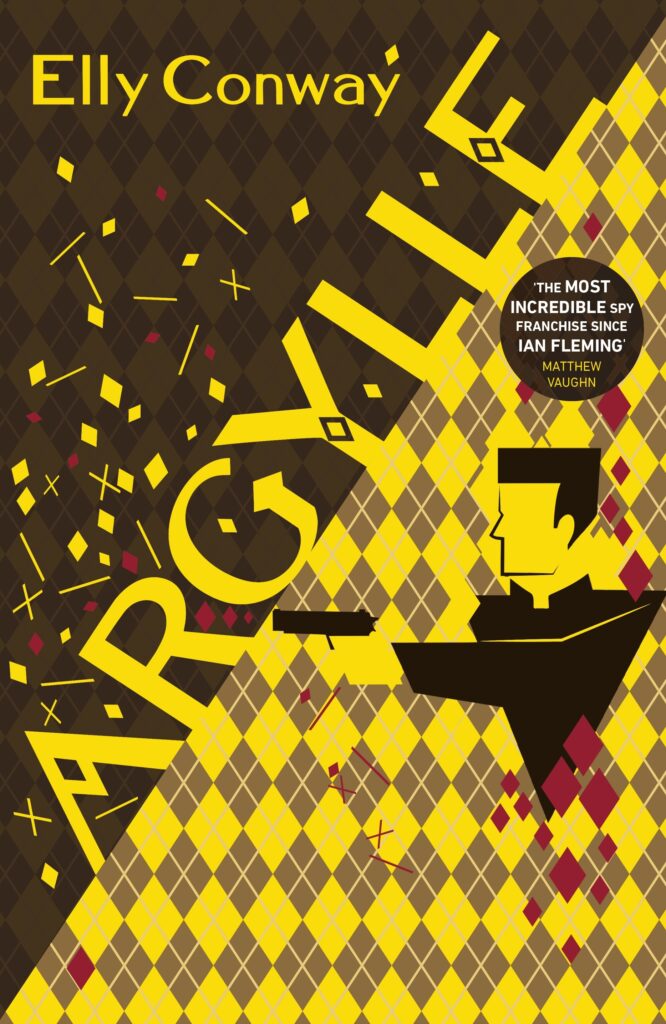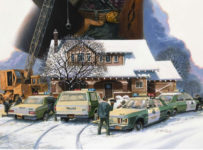What they don’t tell you about ageing is that you get tired of cynical corporate synergy movie tie-in exercises. In a brighter, more innocent world, someone might see Argylle, the novel released one month ahead of a movie of the same name that is not based on the novel but is instead based on a “fictionalised” version of the author of the novel, who probably doesn’t exist, and say “Wow! The thin gruel of this spy novel is great grist for the mill of a metanarrative from one of the more irritating auteurs of the 21st century!”
The wide-eyed ingenue who might have thought that died years ago, and in his place is someone just shy of forty who can almost see through the thin veneer – and yet is still not smart enough to opt out entirely.
Aubrey Argylle is a twenty something hiding out in the Golden Triangle area of Thailand. When he accidentally gets himself involved in a CIA operation that burns his connections to his adopted country, he reluctantly relocates to the United States and joins the Agency in a quest to stop a Russian magnate from seizing a legendary treasure long thought lost to the Nazis.
Argylle is an exercise in bizarre legend forming, stealing valour from the likes of T.J. Newman with the claim “[Conway] wrote her first novel about Agent Argylle while working as a waitress in a late-night diner.” If it turns out that a waitress (or Taylor Swift) did write Argylle, there will be a formal apology forthcoming from these quarters, but realistically the book is copyright to Marv Quinn Holdings, Limited, a company directed by Matthew Vaughn – who directed the movie) and Claudia Schiffer (his wife). Argylle could be written by one of them, or screenwriter Jason Fuchs, or an underling. The sheer number of Briticisms suggest that it’s not an American, let alone a waitress from Upstate New York. Whoever wrote Argylle, “Elly Conway” almost certainly does not exist except as a character in the movie that this is a spin off of, played by Bryce Dallas Howard.
A lot of this is premature, ahead of the release of the film. Maybe everything will come clear after the film is actually released, but who is actually hyped up for this movie apart from maybe some Dua Lipa fans? The fact is that until then, Argylle (the book) was pushed out as the vanguard for what Vaughn intends to be at least a trilogy and part of a shared universe with the Kingsman movies and as yet undetermined third property. That’s ambitious, but Argylle most assuredly is not – except for Vaughn’s claim on the cover: ‘the most incredible spy franchise since Ian Fleming’. (Ian Fleming was an author, not a franchise, but whatever).
In between the pages of Argylle you get a less than standard chase novel with very little spycraft practised. Argylle and his too numerous companions – not counting the boss or mentor, he has fourteen teammates – are most often called upon to participate in X-Games style capers that involve parachuting, motorcycle stunts, and donkey riding. These are admittedly a lot of the things that Ethan Hunt gets up to as part of the Impossible Mission Force, but he does that with style and flair and ties it into his job far better.
The entire plot hangs on the tenuous theory of “Russia is bad”, which might be enough for a lot of modern readers, but some of us need more. The only real detriment of the villain, Federov, emerging victorious is that it’s a win for Russia. They’re not plotting anything other than being Russia – and it’s not even real Russia, as every member of the political makeup of the country is entirely fabricated. Geopolitical turmoil doesn’t have to be nuanced in these sorts of books, but it has to be existent.
Conway is clearly in love with her protagonist, being one of only two characters she’s given any real thought to the development of. Was it the smartest thing to write his origin story rather than to show him at his most vulnerable and, dare I say, dullest? The book pretends that Argylle has an iconic look but firstly he’s on the page and secondly the movie isn’t out yet. Conway has nowhere near the technical proficiency to create a sense of wonder or any strong images, even if the team does go to two genuinely unusual and interesting places.
More than anything, the Argylle film is being promoted as “from the twisted mind of Matthew Vaughn”1, a man famous for, if nothing else, having over the top sequences in his movie. Even when they’re skydiving, Conway’s pawns are trudging to their conclusion. Conway writes with no pizzazz, and the experience is so flattened that a secret Nazi treasure trove completely fails to excite. As the forerunner of a theoretically vibrant new property, Argylle was woefully miscalculated.
There is a possibility that Argylle will be a good movie. It will only take two weeks to find out. But for now, it is impossible not to say that, as a book, Argylle is a pedestrian exercise that tests one’s patience and completely squanders any potentially arresting concepts and imagery behind prose and characterisation that is less than workmanlike. The age of the multimedia film tie-in empire is not yet dead, but Argylle tastes like its dying gasp.
- fRoM tHe TwIsTeD mInD oF mAtThEw VaUgHn ↩︎




No Responses